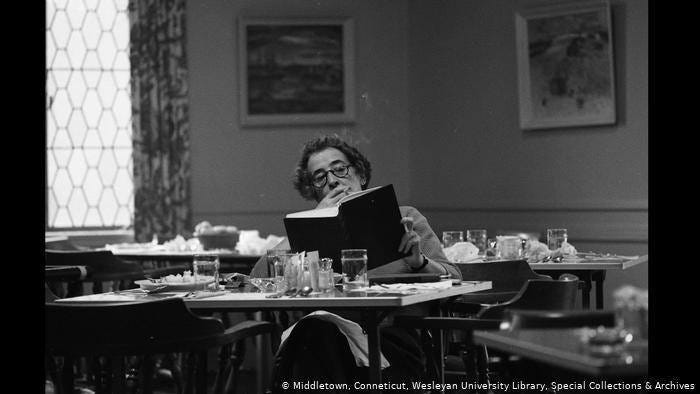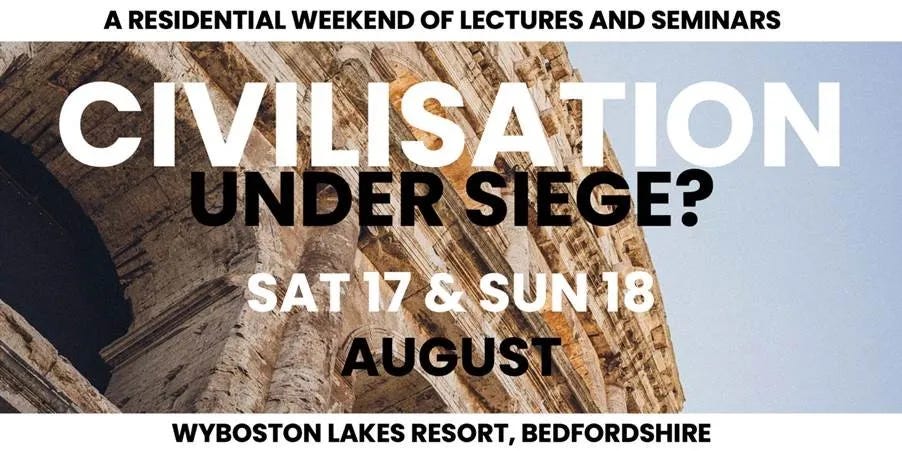Inside the Lords: rebels, Rwanda and religious education
Claire Fox gives an update on a night of cowardice in the Commons and what's coming up inside the Lords.
This week, Inside the Lords has all been about what’s happening inside the Commons - with the rebellion that wasn’t. The Rwanda Bill and the way the so-called Tory rebels rolled over rather than vote against the government is a depressing example of how degraded discussion about immigration has become. Even if the amendments to toughen up the bill had passed, the idea that this piece of legislation will solve the crisis we have with immigration policy is for the birds. It does not address the central problem - that international law is seemingly at odds with sovereign decision-making, and that many voters can see that our own government is not in control of the country’s borders.
It is likely that this bill will be caught up in the Lords while they strip it back, and it is also likely that the government will prove itself spineless again by conceding to amendments. Personally, I am torn. While I don’t support the bill itself, I object to the fact that any attempt to deal with the small-boats issue or anything immigration related is constantly thwarted.
I spoke during a debate on integrating individuals with refugee status - and annoyingly ran out of time during my speech. I pointed out that lots of people feel sceptical about the issue of refugee status itself, and that it can be hard to foster an authentic sense of integration when the system, activist layers, etc seem to encourage people to play the system to gain refugee status. This can only create bad-faith cynicism on all sides.
What I didn’t get time to say was the point that is perhaps most important - that official multiculturalism, and the enforcement of it by the state, is one of the biggest barriers to real integration. Instead of encouraging a genuine sense of belonging as a citizen, multiculturalism uses identity politics to suggest that our differences are what is most important. As a result, people can find themselves sticking to their identity groups, becoming siloed, and don’t want to integrate into a national collective - a trend that has caused serious cultural tensions in the past 10 years.
Elsewhere in the Lords, we debated the issue of religious education in schools. It was a good debate, but on occasion too technical. For example, some fellow peers saw the issue of a shortage of RE teachers being solved by offering generous bursaries to graduates. But I asked, who would be an RE teacher today? The teacher at Batley Grammar School is still in hiding for showing a cartoon of Muhammad, while no amount of bursaries could make the job attractive.
The issue of cancel culture and identity politics has created huge tensions at schools. Michaela Community School in London, run by regular Battle of Ideas festival speaker Katharine Birbalsingh, is currently facing legal action for deciding to ban ritual prayer in school after a group of Muslim students had caused disruption and alleged intimidation of teachers. (Read her excellent statement on the issue here.) If teachers are unable to enact their own rules without fear of pupils taking them to court, why would anyone want to teach?
But perhaps the biggest elephant in the room during a debate covering religion, schools and kids was the issue of conversion therapy. Indeed, if legislation is passed to ban it, any teacher answering questions on the Bible’s approach to men and women, or what Islam thinks about transitioning, might find themselves breaking the law. This censorship of academic and religious freedom, and pressure on teachers with knowledge who simply want to do their job, should concern us all.
Next week we’ll be looking at the Victims and Prisoners Bill, where I’ll be pursuing two arguments. First, I want to make sure that the women who run the services for victims (like rape-crisis centres) are allowed to make sure that it is women and women only who run such services. And second, I will be looking at IPPs (Imprisonment for Public Protection) and the issue of indefinite prison sentences, which is a great miscarriage of justice. No doubt the Rwanda Bill will be with us soon enough, and I’ll make sure to keep you all updated. Make sure to hit the subscribe button below if you haven’t already, to keep up to date with my work inside the Lords - and the work we do outside at the Academy of Ideas.
UPCOMING EVENTS
Bookshop Barnie: Israelophobia: The newest version of the oldest hatred and what to do about it. Austin Williams in conversation with Jake Wallis Simons
7PM, THURSDAY 25 JANUARY
TICKETS - free, but please register here.
You do not have to read the book in advance, but hopefully you'll be persuaded by the arguments. Feel free, however, to buy it here.
East Midlands Salon: Mikhail Bulgakov’s The Master and Margarita
7PM, THURSDAY 25 JANUARY
VENUE: The Brunswick Inn, Station Road, Derby, DE1 2RU
At the first salon of the year, Vanessa Pupavac will introduce a discussion of the literary and political masterpiece that is Mikhail Bulgakov’s The Master and Margarita.
GET TICKETS VIA EVENTBRITE
The State of Free Speech in Northern Ireland
Free Speech Union speakeasy in association with Battle of Ideas festival7PM, FRIDAY 26 JANUARY
VENUE: Titanic Hotel, 8 Queens Road, Belfast, BT3 9DT
FOR TICKETS AND SPEAKER INFORMATION VISIT EVENTBRITE
Living Freedom University Salon: What can we learn from… Hannah Arendt?
6PM, TUESDAY FEBRUARYVENUE: Oriel College, University of Oxford
SPEAKER: Jacob Reynolds
TICKETS: Open to all and free to attend. Reserve a place hereBirmingham Salon: AI – Separating Man From Machine
1PM, SATURDAY 10 FEBRUARY
VENUE: Map Room, Cherry Reds, 88-92 John Bright Street, B1 1BN
SPEAKER: Sandy Starr
TICKETS: https://www.birminghamsalon.org/
Living Freedom University Salon: What can we learn from… Frederick Douglass?
4PM FRIDAY 16 FEBRUARYVENUE: South College, University of Durham
SPEAKER: Dr Alka Sehgal Cuthbert
TICKETS: Open to all and free to attend. Reserve a place here.In the spring, The Hannah Arendt Study Group will be hosting a two-part discussion on Hannah Arendt’s 1963 book, Eichmann in Jerusalem: A Report on the Banality of Evil. The discussions will take place via Zoom, as usual. If you want to take part, and you are not already a member, please join the Group on Facebook.
The Hannah Arendt Study Group: Eichmann in Jerusalem: Session 1
7.00-8:30PM, TUESDAY 20 FEBRUARY
Introduction: Stefanie Borkum
The Hannah Arendt Study Group: Eichmann in Jerusalem: Session 2
7.00-8:30PM, TUESDAY 12 MARCH
Introduction: TBC
THE ACADEMY 2024 - TICKETS AVAILABLE NOW
Is civilisation itself under attack? From wars in Ukraine or Israel to a culture war against foundational western values, some commentators suggest that we face not just a political battle over which direction to take, but a fundamental battle over civilisation as such.
But what is civilisation? How does it emerge? At the origin of the Western tradition, the distinction between civilised and barbarian formed a crucial part of our self-understanding. Yet today, the achievements of Western history are more likely to be regarded as tainted by colonisation than celebrated by elites. Is civilisation itself is seen as a dirty word?
As ever, The Academy will bring together people from all walks of life who are committed to rethinking some of the basic building blocks of political life. This year, we will look at what civilisation is, whether it is under threat, why it might be worth defending.
Tickets and more information visit The Academy 2024 page at Ideas Matter.



